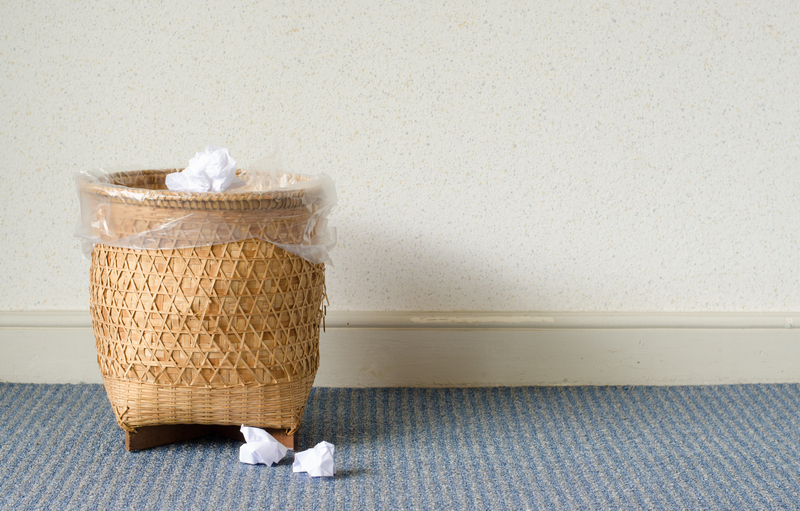Eco-Conscious Ways to Limit Green Waste
In an era of heightened environmental awareness, adopting eco-conscious practices to manage and reduce waste is crucial. One significant area that demands attention is green waste management. By implementing effective strategies, individuals and communities can contribute to a more sustainable future. This article explores various eco-conscious ways to limit green waste, providing practical tips and insights along the way.
Understanding Green Waste
Green waste encompasses organic waste materials found in our gardens and homes. It includes grass clippings, leaves, branches, and food scraps. Unlike other waste types, green waste can be transformed into valuable resources through composting and recycling processes. However, when not managed properly, it can contribute significantly to landfill volumes and methane emissions, a potent greenhouse gas.
The Importance of Reducing Green Waste
Minimizing green waste plays a critical role in enhancing environmental sustainability. It reduces landfill usage, lowers greenhouse gas emissions, and conserves natural resources. Additionally, proper management practices can improve soil fertility, leading to healthier plant growth. By embracing eco-conscious methods, we can positively impact local ecosystems and fight climate change.

Effective Strategies to Limit Green Waste
1. Composting: A Natural Recycling Process
Composting is an efficient method to recycle organic waste and create nutrient-rich soil, known as humus. It involves decomposing organic matter under controlled conditions, resulting in a valuable soil amendment for gardens and landscapes.
- Select a Composting Method: Choose between traditional compost bins, vermicomposting with worms, or utilizing Bokashi composting for accelerated results.
- Layering Organic Materials: Alternate layers of green waste such as grass clippings and kitchen scraps with brown materials like dried leaves and twigs.
- Maintain Moisture and Aeration: Keep the compost pile moderately moist and aerate it regularly by turning it with a shovel or compost fork.
- Utilize Compost in Your Garden: Once decomposed, spread the compost in garden beds, flower pots, or lawns to enrich the soil.
2. Grasscycling: Recycling Lawn Clippings
Grasscycling involves leaving grass clippings on the lawn after mowing, allowing them to decompose naturally. This reduces the need for chemical fertilizers and minimizes waste disposal.
- Mow Regularly: Keep your lawn healthy by mowing at regular intervals, ensuring the clippings are short and can easily decompose.
- Use a Mulching Mower: Opt for a mower with a mulching blade that chops the grass into smaller pieces, facilitating faster decomposition.
- Observe Weather Conditions: Avoid grasscycling during prolonged periods of wet weather, as excess moisture can lead to clumping and slow decomposition.
3. Implementing Smart Landscaping Practices
Adopting smart landscaping practices can significantly reduce green waste while creating an aesthetically pleasing outdoor space.
- Choose Native Plants: Opt for native plants that are well-suited to the local climate, requiring less maintenance and producing less waste material.
- Practice Prudent Pruning: Regular, light trimming encourages healthy growth and reduces the volume of clippings and trimmings.
- Plant Trees Strategically: Strategically planted trees provide shade and windbreaks, reducing the need for extensive lawn maintenance.
4. Creative Reuse and Upcycling
Instead of discarding organic material, consider creative ways to reuse and upcycle green waste.
- Create Art and Craft Projects: Use branches, leaves, and seeds to create natural art pieces, wreaths, or other decorative items.
- Develop a Hugelkultur Bed: Build a raised garden bed using logs, branches, and other organic matter as a base, reducing the need for soil inputs.
- Use Mulch for Landscaping: Shredded branches and leaves make excellent mulch, suppressing weeds and retaining soil moisture.

Benefits of Reducing Green Waste
Implementing these eco-conscious methods offers numerous benefits:
- Environmental Conservation: Reducing green waste contributes to lower carbon footprints and preservation of landfill space.
- Enhanced Soil Quality: Compost and mulch derived from green waste improve soil structure, fertility, and water retention.
- Cost Savings: Reduced need for commercial fertilizers, soil amendments, and disposal fees saves money in the long run.
- Community Engagement: Eco-friendly practices foster community participation and environmental awareness.
Conclusion: A Greener Future
By embracing these eco-conscious practices, individuals and communities can play a vital role in reducing green waste and promoting environmental sustainability. Implementing composting, grasscycling, smart landscaping, and upcycling not only helps limit landfill waste but also enriches the soil and fosters a healthier ecosystem. Each small step we take contributes to a greener, more sustainable future for generations to come.
Start today with these practical strategies, and watch as your efforts culminate in a positive impact on the environment. Together, we can build a more conscious world, one filled with lush gardens and thriving ecosystems, all while minimizing our ecological footprint.
With dedication and innovation, the journey to limiting green waste is not only achievable but exhilarating. Adopt these practices, inspire others, and take pride in being part of a global movement towards a more sustainable planet.